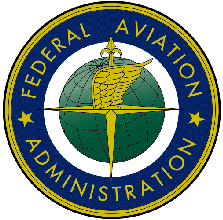This Could by Good News; This Could be Bad News
Guest Editorial by 'Hippolyte Bouchard'
 The FAA has
started another new policy to implement consistency among the FSDO
networks in response to public complaints. The new policy, as
recently announced by the Administrator, is perhaps a good change,
but it does not do much to address the original complaint: the
inconsistencies in the field approval process.
The FAA has
started another new policy to implement consistency among the FSDO
networks in response to public complaints. The new policy, as
recently announced by the Administrator, is perhaps a good change,
but it does not do much to address the original complaint: the
inconsistencies in the field approval process.
This happens a lot: one FSDO office may approve a small
modification for an aircraft, and the pilot’s buddy (in
another FSDO district) who wants to alter his aircraft in the same
way is told that the alteration cannot be field-approved. The FAA
has tried to change that in typical government fashion by issuing
more-precise guidelines, more centralization, less autonomy of the
field inspectors; and the old government standby -- longer
paper trails, involving more people, to share the responsibility.
That did not work; it just made field approvals much harder to get.
To find a solution, the problem must first be identified.
If it's not broken, don't mess with it.
The field approval process was not 'broken.' It worked very well
over the years. Mistakes were made with field approvals,
but not because of the process; most of the breakdowns came as a
result of FAA's hiring practices and attitude. Let’s face it,
the FAA has some 'sky gods' to be sure, but it has a greater number
of people who don’t have any real experience with general
aviation. Those who are experienced move out of GA, leaving the
least-experienced to attend to our needs. That in itself keeps GA
at the bottom of the FAA food chain.
Responsibility? You're creepin' me out!
 Combine that with the fact that giving a field approval means
that the field inspector is taking some responsibility, something
that government employees are not known for -- it is a wonder that
the FAA hasn’t stopped field approvals altogether! The
attitude that 'if someone can read and follow instructions, he can
do the job,' is wrong. An inexperienced person can muddle through a
field approval, but it takes a lot of time from everyone involved.
It takes two days to install a radio -- and up to six months for
approval.
Combine that with the fact that giving a field approval means
that the field inspector is taking some responsibility, something
that government employees are not known for -- it is a wonder that
the FAA hasn’t stopped field approvals altogether! The
attitude that 'if someone can read and follow instructions, he can
do the job,' is wrong. An inexperienced person can muddle through a
field approval, but it takes a lot of time from everyone involved.
It takes two days to install a radio -- and up to six months for
approval.
A bigger problem, found in the psyche:
FAA field inspectors also have another problem in admitting that
they don’t know. Somehow, I suspect that this is the root of
the evil. It is a very human reaction (and very common to employees
of large entities with a corporate ladder to climb) to not
admit that they don’t know. It’s easier to say that an
alteration cannot be approved, so the problem will go away. That is
the inconsistency that has generated so many complaints.
She hears, but doesn't understand...
The administrator, Marion Blakey, has listened to the
people. She just didn’t hear what they were saying. She has
the right intentions and has given a step forward to the solution
of inconsistency among FSDOs.
- To get better service from the FAA is going to take more than
being able to question the inspectors' decisions. The FAA needs to
find personnel with experience in the areas involved, and keep them
there. Career-wise, within the FAA, GA must be considered as equal
to the heavy metal, instead of a place from where to start climbing
the FAA corporate ladder.
- The training program for field approval authorization needs to
be scrapped. The solution will take a school where the people are
educated on the subject, where they learn to think, not a 'diploma
mill,' where they are trained like a monkey, getting a treat
for pushing the right button.
- The field inspectors must realize that unnecessary delays in
approvals are very harmful to the industry. The process should be
streamlined instead of burying it in more layers of bureaucracy --
those only serve to delay and increase costs with no benefit to the
public.
- A system should be put in place that when an inspector is asked
for approval on an aircraft alteration that they may not be
familiar with they can find within the FAA someone who is, and
consult with them.
- The Instructions for Continued Airworthiness which is
incorporated in field approvals needs revision to better its
disposition and make itself useful to someone other than the FAA.
Streamlining any AFM changes associated with field approvals is
sorely needed.
Please note:
 Streamlining does not mean "less safe" and more
bureaucracy does not mean "more safe." The FAA (as well as the
media) needs to learn this.
Streamlining does not mean "less safe" and more
bureaucracy does not mean "more safe." The FAA (as well as the
media) needs to learn this.
It’s not all the FAA’s problem. Peter Pilot has a
habit of talking to the inspector to get to the bottom of the delay
(and thus creates a fair share of misery for all involved, as
he often knows less than nothing about the process and gets
his facts very confused). But it’s his airplane and if he
chooses to delay in this manner, it’s his right, but he
shouldn’t blame the FAA, as he often does. All of this
and more contribute to the FAA "inconsistencies" and if history is
any indication, it won’t get better. Be careful what you wish
for: you might get it.
(To the editor: If this gets published, for God’s sake
don’t use my real name. I could end up on some terrorist list
somewhere and a goon squad will hunt me down and take my nail
clippers!)
 ANN's Daily Aero-Linx (04.15.24)
ANN's Daily Aero-Linx (04.15.24) Classic Aero-TV: 'No Other Options' -- The Israeli Air Force's Danny Shapira
Classic Aero-TV: 'No Other Options' -- The Israeli Air Force's Danny Shapira Aero-News: Quote of the Day (04.15.24)
Aero-News: Quote of the Day (04.15.24) Airborne 04.16.24: RV Update, Affordable Flying Expo, Diamond Lil
Airborne 04.16.24: RV Update, Affordable Flying Expo, Diamond Lil ANN's Daily Aero-Term (04.16.24): Chart Supplement US
ANN's Daily Aero-Term (04.16.24): Chart Supplement US





